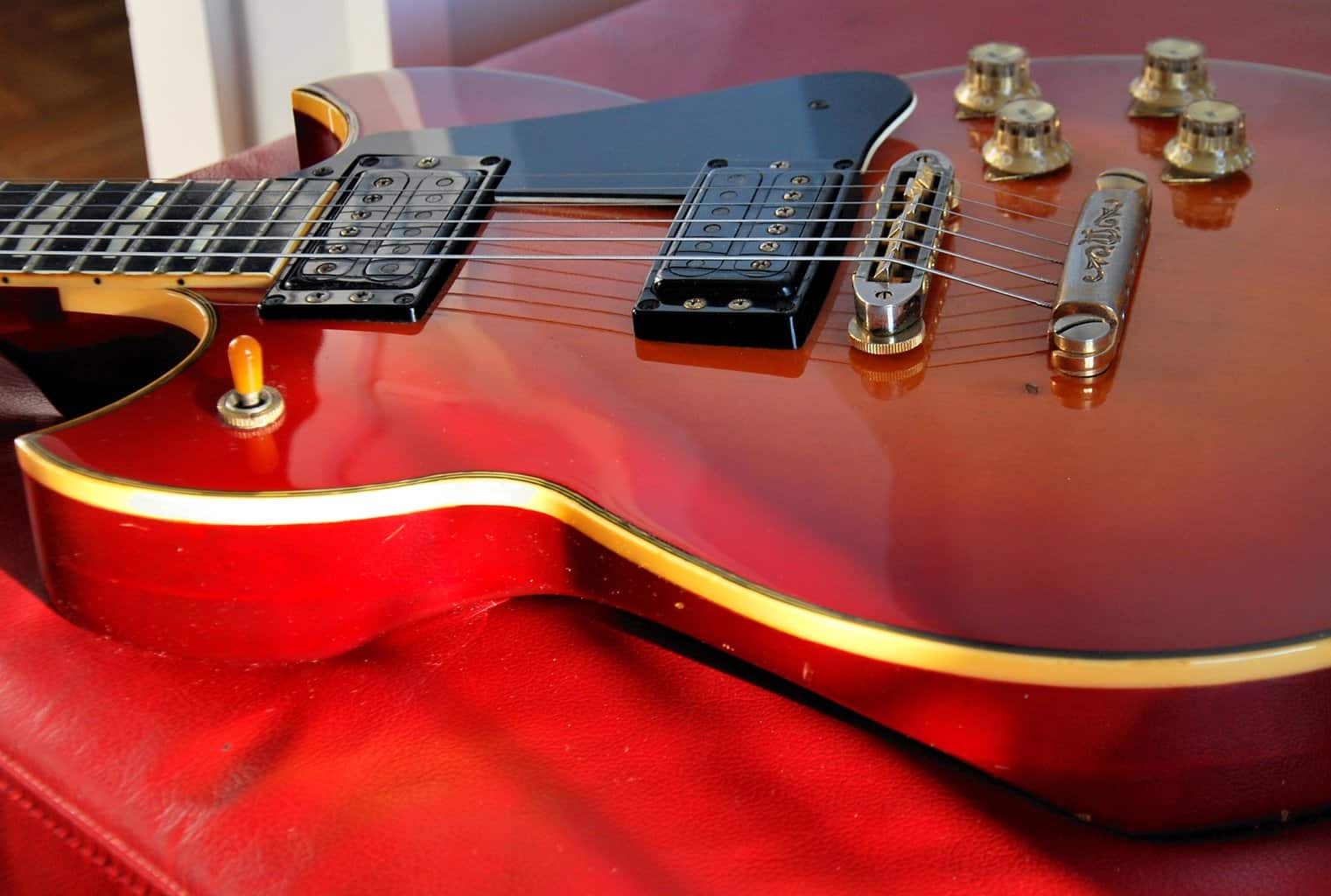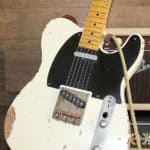There are many players that choose their instruments based on how much they weigh.
But is this really important?
Are heavier guitars actually better?
Does guitar weight actually affect tone? Here is a short answer:
Weight does not have an effect on the tone of a guitar, however, it is the result of many things that do. One of the most impactful is tonewoods. Lighter guitars are built with softer woods that resonate more and sound more open. Heavier ones use hardwoods that sound warmer and have more sustain.
In this article, for those who want to dive deeper into this topic, I will talk about how much weight is connected with tone.
After that, I will answer some of the most common questions related to guitar mass.
Finally, I will give you my conclusions and recommendations about how you should approach the decision of getting a new guitar in relation to its weight.
Are you ready to get started?
Let’s go!
Does guitar weight affect tone?
Weight does have an impact on the tone of a guitar, however, only because it represents different kinds of materials and construction types. Lightweight guitars resonate more and sound brighter and more open. Heavier guitars have a richer warmer tone and sustain for longer.
What I mean by this is that weight per se is not something that defines tone, but the result of coupling together a lot of things that do.
For instance, harder tonewoods are denser and weigh more than softwoods. Considering this, a heavier guitar will probably be built with hardwoods such as mahogany, maple, or rosewood that have particular tonal characteristics different than those of softer woods as alder or swamp ash.
How much does guitar weight affect tone?
Quantifying how much a certain aspect of a guitar influences its tone is no easy task. It would require extensive scientific research to arrive at conclusive results.
What I can offer you is empirical evidence, based on the opinion of many players.
As I mentioned earlier, weight per se is not a defining factor for tone. However, it is a good proxy for what materials were used to build a particular guitar.
Taking this into consideration, and focusing on woods, we do know that they have a strong impact on how a guitar sounds.
So, to be extra clear: Weight is not a factor that determines tone, but the result of combining many other factors that do, and their impact is clear.
How much does an electric guitar weigh?
Electric guitars weigh around 8 lbs, on average, but this will depend on the kind of woods used, the shape of its body, the hardware chosen, and whether if it’s a chambered or weight relieved body or not. 95% of guitars weigh between 5.5 and 11 lbs.
Main things that define the weight of a guitar
Of course, every part of the guitar contributes to its final weight, however, I think the most important ones are the following:
The cubic volume of a guitar
This is a bit technical, but knowing the actual cubic volume of a guitar will help have an estimate, alongside the average weight of different tonewoods, of how much weight these materials contributed.
Solid-body electric guitars, on average, have a cubic volume of 300 to 350 cubic inches.
How much do different tonewoods weigh on average
| Tonewood | Average weight (lbs / cubic ft) | Average weight (lbs / cubic inch) |
| Basswood | 25 | 0.014467 |
| Alder | 28 | 0.016203 |
| Swamp Ash | 30 | 0.017836 |
| Mahogany | 40 | 0.023148 |
| Maple | 45 | 0.026041 |
| Rosewood | 55 | 0.318287 |
With the last column of this table, by multiplying those values by the average cubic volume of wood (300 to 350 cubic inches) before mentioned, you can have a very rough estimate of how much a hypothetical guitar will weigh.
Body shape
The shape of a guitar has a direct impact on its weight. It determines how much wood is required for that particular instrument.
Weight balance is another important aspect related to shape. Where the center of mass is, will determine, among other things if the instrument has a tendency to neck dive when hanging from a strap or if it will stay in place.
Construction type
With construction type, I refer to the kind of guitar. The most common being a solid body, a semi-hollow, or a completely hollow one.
There are also chambered and weight relieved bodies that take wood out. These are closer in looks and manufacturing to solid bodies.
Of course, the more hollow you go down the scale, the lighter the instrument becomes. This is why many big jazz guitars are actually way lighter than you would imagine.
Hardware
The hardware of a guitar has an important role when adding up all the contributions to its final weight. From pickups to tuners, bridges, and tailpieces, they are mostly made of metal and metal is heavy.
Many players take into consideration how much a set of new tuners or even a Bigsby tailpiece will weigh before making an upgrade, especially if they suffer from back pain after playing.
Even the effect of new hardware in balance could be detrimental.
Do heavier guitars sound better?
Heavier guitars tend to sound warmer, fuller and have more sustain, but this is not because of their weight. Actually, weight is just an indicator of which tonewoods were used to build that guitar, and harder woods are heavier and explain the tonal characteristics attributed to heavier instruments.
Do heavier guitars have more sustain?
Weight has no influence on how much an instrument can sustain a note, however, it is the result of a combination of elements that do have an effect on sustain. Harder woods, which are heavier in weight, are considered to improve sustain since they have a lesser dampening effect on the strings.
Do lighter guitars have any benefits?
Lightweight guitars are known for being more resonant and having a brighter, more open sound. Also, one of the main benefits of a light instrument is the reduced strain on a player’s back it will cause over longer sessions of stand-up play. This is a very important factor to consider when choosing a guitar.
Conclusions and recommendations
Whether you are looking for a new guitar or planning on building or having one built, getting to know, at least at a high level what effects do guitar weight has is, in my opinion, something that will help you make a better informed final decision.
However, here in GearAficionado, I always say that you should try out every instrument before buying it if you have the chance.
Some people feel more comfortable with really heavy pieces of wood hanging from their backs, others only play feather-light instruments, and many others just don’t care.
If it’s within your reach, try to get to play completely different guitars to clearly understand where the variation lies, and then start checking out ones closer to the one you preferred the most.
Finally, don’t forget to have fun. Technicalities for some people get the joy out of getting a new piece of gear. You don’t have to know it all about something that makes you smile. Just go and play the instrument that feels best to you.

Hello there, my name is Ramiro and I’ve been playing guitar for almost 20 years. I’m obsessed with everything gear-related and I thought it might be worth sharing it. From guitars, pedals, amps, and synths to studio gear and production tips, I hope you find what I post here useful, and I’ll try my best to keep it entertaining also.





